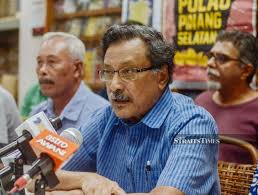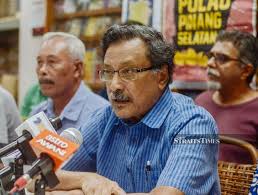
The Consumers Association of Penang (CAP) calls on the authorities to come out with mandatory safety standards for cooking gas cylinders.
“In Malaysia, gas leaks causing explosions have resulted in numerous injuries and deaths over the years. The latest involved a doctor who is battling for his life after a gas explosion left 95% of his body covered in burns.
“According to a doctor, gas explosions are currently one of the most common reasons for admissions to the burns units, and because of the complexity and severity of such cases the majority have to be managed in the government hospitals, requiring high intensive care.
“The mortality is very high, and roughly corresponds with the surface area of the body involved, for example if it is an 80% the mortality is as high as 80%,” said Mohideen Abdul Kader, President of the Consumers Association of Penang in a press statement.
He added that in most cases if the victim is able to survive the first 24 hours they will encounter multi-organ complications, infection and organ failure, which all accounts for the high mortality.
“In cases where the victim survives, hospitalisation is often for a period of six months or more, with lengthy rehabilitation post discharge, and if they are ever able to resume work it will be a long time.
“According to the World Health Organization’s (WHO) 2016 fact sheet, burns are a global public health problem, accounting for an estimated 265,000 deaths annually. The majority of these occur in low and middle-income countries and almost half occur in South-East Asia.
“Non-fatal burns are a leading cause of morbidity, including prolonged hospitalisation, disfigurement and disability, often with resulting stigma and rejection.
“Cooking gas is odourless but mercaptan (a pungent-smelling odorant) is added to it, so that leaks become detectable.
“In a gas explosion, the leak can occur at the cylinder valve, or in the connecting rubber hose, or at the oven valve. Each type of leak needs to be treated differently.
“Almost every Malaysian household has at least one stove which uses gas (in cylinders) for cooking. Even though it has been in widespread use by consumers in Malaysia for more than 50 years there is not much information and education available for consumers on the proper use and maintenance for cooking gas cylinders. And many of the cylinders used may be old, rusted and poorly maintained,” he said.
In view of the danger of gas cylinders explosion, CAP calls on the authorities to:
Come out with mandatory safety standards for cooking gas cylinders.
Provide safety procedures on cooking gas use and during emergencies. Make it mandatory for cylinders to carry an expiry date for the cylinder, valve, hose and
regulator
Have regular inspections on the gas cylinders used;
Ensure that all parts including the rubber O-ring conform to Standards;
Establish an agency for testing the cylinder and other related items;
Establish a regulatory agency for the cooking gas industry.
Make it mandatory for hawker stalls and food outlets to have fire extinguishers on hand
Promote gas safety awareness.
Where consumers are concerned they should:
Keep their kitchens clean as oily surfaces catch fire easily.
Check the condition of the gas cylinder before using it. Pay attention to the rubber seal
inside the cylinder head (after the cap is removed). The seal prevents leaks after the
regulator is inserted.
Replace the hoses and clips every two years, and the regulators, every five years.
Avoid over boiling from pots. Spilled soup/gravy can get into/block the gas flame holes.
Well-ventilated cooking area.
Do not put weights like heavy books on top of the tank’s regulator if the gas is not released.
If this occurs it is time to change the regulator.
Turn off the gas source and DO NOT SWITCH ON OR OFF any electrical devices if
there is a gas smell. This will prevent electrical sparks from setting the gas on fire or
causing an explosion.


